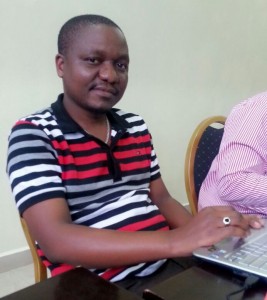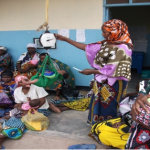#AddYourCount Series: AMREF Tanzania

Welcome back for this week’s installment of the #addyourcount series! This week we interviewed Elia Msegu, project manager of AMREF Health Africa’s Tanzania program.
What are some of the services provided by your current CHW program?
The CHWs in our program provide immunization services, act as community-based distributors of modern family planning services, and help promote antenatal care. They are also responsible for supporting the provision of Youth Friendly Services for young people in rural areas by collecting and doing simple analysis of community based health information, and participating in village meetings.
How do demographic and social issues within communities inform and affect the decisions you make with your CHW program?
Our program focuses on improving sexual and reproductive health and the rights of young people, so we prefer to use younger community members as CHWs so that they can more easily relate to the people they serve. We like to work with individuals who are known to be permanent dwellers of a particular village and are respected by their own community. We also prefer to work with individuals who have at least basic education and can read and write well. In Maasai villages, it is important to have a CHW who comes from the same Maasai community to build trust and reduce language barriers.
What are some of the most effective ways that you have found to reach nomadic individuals and those who live in remote areas?
The most effective way that we have found is to make use of community resources by using community members as CHWs. Once community members are provided with knowledge on health, they will carry this knowledge with them as they move with their cattle through communities in search of pastures and water. Trained CHWs have a special ID where they can get supplies such as condoms, pills, and information, education, and communications materials from any nearby health facility for their communities. The use of mobile clinics that trace migratory routes of pastoral communities has also been a very effective way to reach rural communities with health services.
How is your organization working to optimize CHWs’ impact through technology?
Amref Health Africa is currently working to optimize the impact of CHWs through the use of mobile phone technology to manage data and also access health related information for clients. This technology is used in some regions of Tanzania through the JIBU project where CHWs can access health related topics and modules. The use of mobile phone technology has been effective in areas with network coverage because the application needs to be uploaded through internet.
What are some challenges that you see to scaling up CHW programs in Tanzania?
CHWs are a potential human resource for health that is not currently being recognized by local governments, the central governments, and even most communities. Most CHWs are trained to perform a great deal of duties that would be normally performed by trained health practitioners. However, despite this, CHWs are not rewarded well. A challenge to scaling-up CHW programs is finding strategic plans that considers proper recruitment, induction, motivation, retention, and replacement of CHWs. If these factors are not considered then attrition is inevitable.
—
If you would like to learn more about AMREF Health Africa and their amazing work please visit their website or follow them on Facebook or twitter (@Amref_Worldwide & @AmrefTanzania). Be sure to check back next week for the next interview of the #AddYourCount blog post series!

